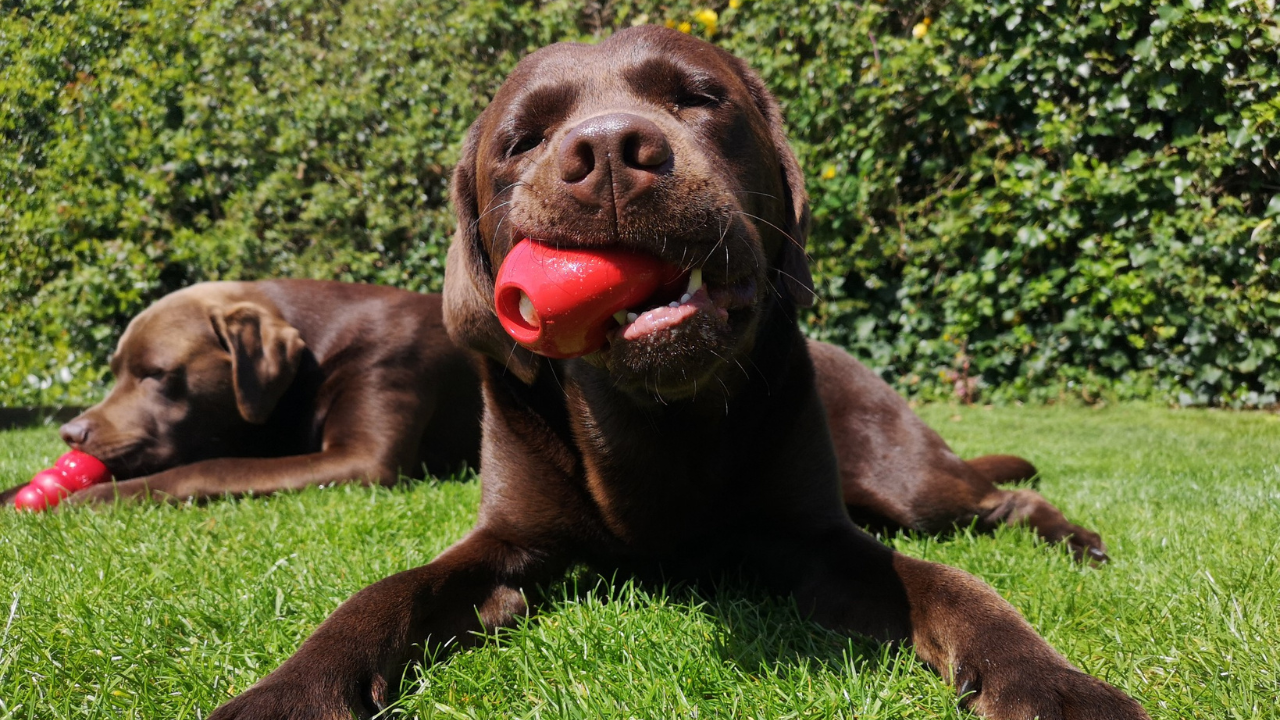Should we really ditch the bowl?

By Michelle Dart
In recent years the idea of feeding dogs from a bowl has become almost vilified by the rising popularity of alternative feeding options such as puzzle feeders and snuffle mats seeking to provide enrichment during meal times. But is it always best to ditch the bowl?
The shift towards providing additional enrichment for our dogs is a brilliant one. The recognition that dogs need outlets for natural behaviour in order to meet their emotional, physical, mental and social needs on a daily basis has done so much good for dogs and their families and as professionals we see the impact this has on wellbeing and behaviour.
But have we gone too far?
By ditching the bowl completely what we are saying is that our dogs need to work in some capacity for every meal. Whether that is in a puzzle feeder that they need to solve to reach their food, training with us or scattering food in a snuffle mat or long grass for them to find. Any time they want to access nourishment there is an activity associated with it.
Add to this the trend towards creating more and more complex activities so that ‘enrichment’ games last longer and I think we are on a slippery slope that can negatively impact wellbeing. Partly I believe this desire for longer lasting enrichment is fueled by wanting our dogs to have fun for longer but I also see it used as a way for guardians who might be struggling with their dog’s energetic behaviour to have a break while their dog is doing something else.
There are lots of reasons why dogs might show over-arousal and often providing natural outlets can really help. Food enrichment can be one of those but we also want to look at the big picture to understand if there are other underlying causes for behaviour which need looking at. Simply tiring our dogs out physically or mentally is rarely the answer. And the idea that longer lasting enrichment games are somehow better is hugely misguided - enrichment should be enriching, and the intention of creating longer lasting puzzles might instead lead to frustration.
We must always ask ourselves if the activities we set up are fulfilling the goal of enriching our dog’s experience or has it become something else.

How would you feel?
Imagine heading out to a restaurant with your partner and before the waiter brings your meal they ask you to solve a Rubik's cube. How would you feel? You might initially be irritated, but this could turn to increasingly frustrated or even angry if you struggle to complete the puzzle while food is held just out of reach. If you are hungry and you are trying to solve a puzzle, your performance will be hindered by low blood sugar, impeding your ability to concentrate and process information effectively. How would this experience feel overall? Would you be likely to want to go back to the restaurant again? How would it impact your feelings towards your partner if every time you went out for a meal you had a puzzle to solve before food arrived?
It seems like madness when you think of this in a human scenario but in effect this is what we’re asking of our dogs if every mealtime involves brain games or working for their food in some way. Is it really an enriching experience for them? I think the answer is, it depends…
What is best for our dogs and what gives them the most enriching experience depends, as always, on the individual. Some dogs love to problem solve, while others become easily frustrated. Some dogs are more optimistic or resilient and may persevere with things for longer before showing signs that they are struggling and some dogs always seem eager to get stuck into their food puzzles or training games. So how do we know what is right for each dog?
Some simple things we can do to set our dogs up for success are:
- Always feed your dog one ‘free’ meal a day. This can be out of a bowl and the idea here is that your dog can eat without having to do anything specific first. This will ensure that they aren’t hungry and will be more likely to find other food puzzles or training games genuinely enriching.
- If you are planning a training session with your dog, or heading out to a training class, give your dog a chance to freely eat some of their food allowance before you go, rather than taking them hungry. This will set them up to make better cognitive choices and lead to a more rewarding experience for you both. Remember that there are lots of fun alternative ways to motivate your dog during training so you don’t need to rely on food.
- Give your dog choices during mealtimes. Set up a selection of food options including free food access in a bowl, a simple enrichment game, like a snuffle mat or lickimat, and then something more challenging, like a puzzle feeder or the chance to do training games with you. You will find some ideas on how to use a similar set up in your training to enhance your dog’s experience in our choice-based training blog. This will let your dog choose whether they are in the mood for something more taxing or if they just want to access food easily at that time. Are there any activities that your dog leaves til last or avoids altogether? Does your dog choose different options at different times? Their preference could vary depending on hunger, tiredness, other experiences they’ve had during the day or how well they feel, among other things. Paying attention to your dog’s choices can reveal a lot of information.
- Gauge the difficulty of any enrichment games based on your individual dog. More complicated puzzles are not always the most enriching. You want to ensure your dog is enjoying the experience so start off with easy games and build up to more complex options. You can always offer free food in a bowl alongside puzzle games as you increase the difficulty to ensure your dog is opting in to the puzzle because it is enjoyable for them and not simply because they are hungry.
Providing enrichment in the way we deliver food can be really beneficial for our dogs if done in ways that are tailored to each individual but we always want to ensure we are meeting our dog’s fundamental needs by also providing sufficient free access to food without any requirement to work for it.
So to sum up - don’t just ditch the bowl. Instead be mindful and considerate of your dog’s individual needs in the way you deliver their food!


